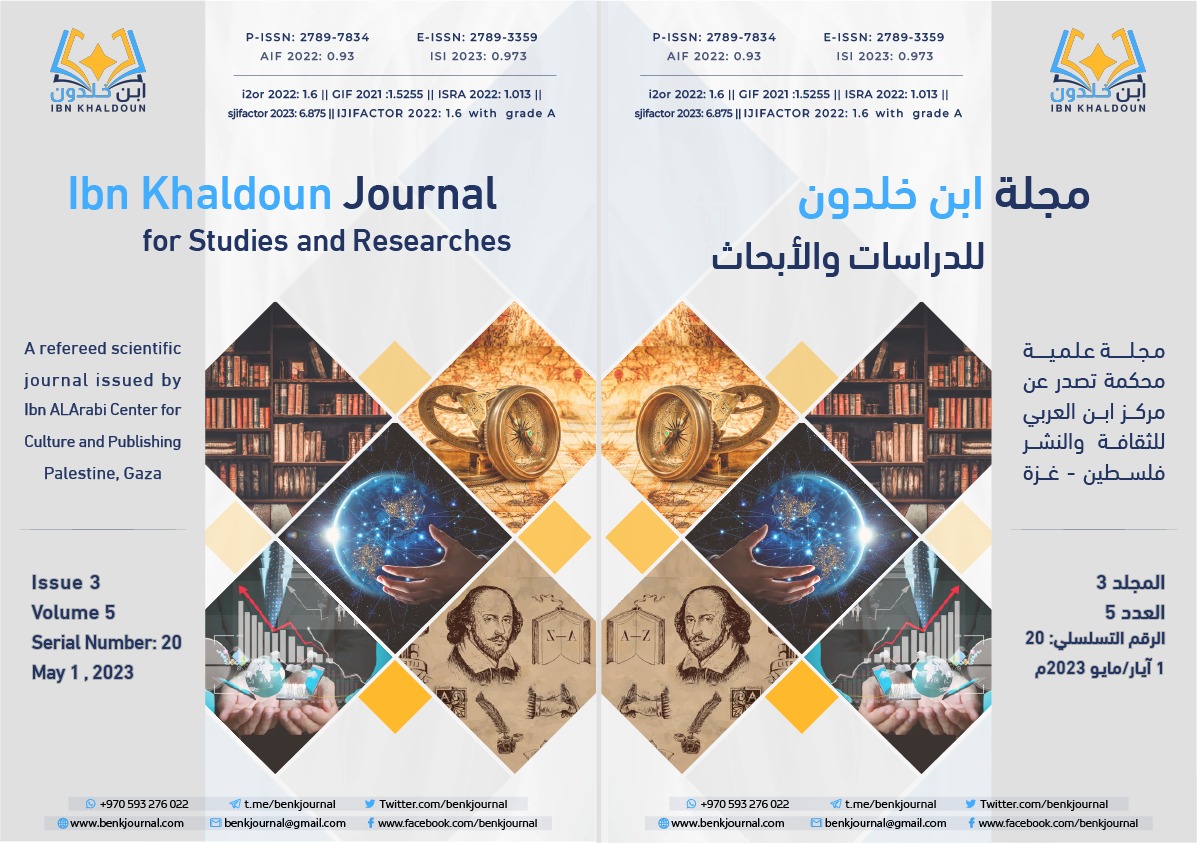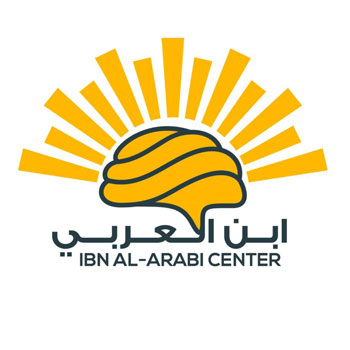The degree of inclusion of mathematical reasoning vocabulary in the developed tenth grade mathematics curriculum in the post-basic education stage in the Sultanate of Oman
DOI:
https://doi.org/10.56989/benkj.v3i5.343Keywords:
المفردات, الاستدلال الرياضي, منهاج الرياضيات, الصف العاشر , منهاج رياضيات الصف العاشر المطور , سلطنة عمان, التعليم ما بعد الاساسيAbstract
The study aimed to investigate the extent of the inclusion of mathematical reasoning in the curriculum of the 10th-grade mathematics in Sultanate of Oman. To achieve the objectives of the study, the researchers used a quantitative descriptive approach by preparing an analysis card consisting of 18 indicators distributed across five domains. After verifying the instrument's validity and reliability, it was applied to four 10th-grade mathematics textbooks. The results of the study revealed that the degree of inclusion of mathematical reasoning in10th-grade mathematics curriculum in the post-basic education stage in the Sultanate of Oman was high, with a percentage of 28.25% of the total evaluative vocabulary. It was 37.33% in the first semester student book, 27.88% in the second semester student book, and 25.35% in the first semester activity book, while the second semester activity book came in at 22.34%. The results also indicated that the domain of analyzing mathematical relationships and situations came first with a percentage of 7.50%, followed by the domain of mathematical reasoning and argumentation with a percentage of 5.71%, then the domains of combining and integrating procedures and results, evaluating solutions and extracting results with a percentage of 5.40%, and finally, the domain of generalizing mathematical patterns and relationships with a percentage of 4.10%. The researchers recommended the need to diversify the formulation of evaluative vocabulary according to mathematical reasoning domains and the need to practice reasoning in all classroom and non-classroom situations.
Metrics
References
أبو زينة، فريد كامل. (2010). تطوير مناهج الرياضيات المدرسية وتعليمها، دار وائل للنشر.
أبو زينة، فريد، وعبد الله، عبابنة. (2007). مناهج تدريس الرياضيات للصفوف الأولى. دار المسيرة للنشر والتوزيع.
أبو سكران، محمد. (2019). درجة توافر العمليات الرياضية في محتوى كتب الرياضيات الفلسطينية الجديدة للصفوف (6 – 8) من المرحلة الأساسية. مجلة الجامعة الإسلامية للدراسات التربوية والنفسية: غزة، 27(1)، 185-211.
بدوي، رمضان مسعد. (2008). تضمين التفكير الرياضي في برامج الرياضيات المدرسية. دار الفكر للطباعة والنشر والتوزيع.
الجبيهي، نور محمد..(2020) أوجه الاستدلال الرياضي التي يركز عليها معلمو الرياضيات ومدى توافرها في كتب الرياضيات الفلسطينية للمرحلة الثانوية حسب معايير المجلس القومي لمعلمي الرياضيات NCTM"" (رسالة ماجستير). جامعة بيرزيت كلية الدراسات العليا، فلسطين.
الزغلول، عماد. (2012). مبادئ علم النفس التربوي (المجلد 2). دار الكتاب الجامعي.
السيد، عبد القادر، والبرعمي، يوسف. (2020). دراسة تحليلية لكتب الرياضيات في مرحلة التعليم الأساسي بسلطنة عمان وفق معايير ."NCTM" مجلة البحوث التربوية والنفسية، 17(67). 268-293.
الشمراني، هيثم (2018). تحليل محتوى کتب الرياضيات بالمرحلة الثانوية في ضوء مهارات التفکير الرياضي بالمملکة العربية السعودية. مجلة تربويات الرياضيات، 21(8)، 132-151.
عبد، إيمان. (2009). مستويات الاستدلال التناسبي لدى طلبة المرحلة الأساسية العليا في الأردن، مجلة دراسات العلوم التربوية بالأردن، 36، 28-40.
العبسي، محمد مصطفى. (2010). طرق تدريس الرياضيات لدى الاحتياجات الخاصة، دار المسيرة للنشر والتوزيع.
المطيري، مشعل، والمعثم، خالد. (2021). مستوى اتساق کتب الرياضيات للصفوف العليا بالمرحلة الابتدائية مع المعايير الوطنية لعمليتي الاستدلال الرياضي والتواصل الرياضي، مجلة تربويات الرياضيات، 24(10)، 114- 149.
المعموري، عادل، والنائلي، محمد. (2021). تقويم مسائل الفيزياء الرياضية في محتوى كتب الفيزياء للمرحلة الإعدادية وفقا إلى مهارات التفكير الاستدلالي، مجلة إشراقات تنموية، 23، 399-423.
المقبالي، علي. (2022). لقاء حول بناء المفردات التقويمية في مناهج سلاسل كامبردج لمادة الرياضيات للصفين التاسع والعاشر (ورقة عمل30-31مارس2022). المديرية العامة للتربية والتعليم بمحافظة شمال الباطنة.
المقيد، سامر، والنحال، أميرة (2020). مهارات التفكير الاستدلالي المتضمنة في محتوى موضوعات الهندسة للصفين السابع والثامن الأساسي بغزة. مجلة الجامعة الإسلامية للدراسات التربوية والنفسية. 28(1)، 771-793.
هيئة تقويم التعليم والتدريب. (2019). وثيقة معايير مجال تعلم الرياضيات، الرياض.
Boston College. (2019). TIMSS & PIRLS International Study Center website: http://timss2019.org/wpcontent/uploads/frameworks/T19-Ass.
Hamami, Y. (2014). Mathematical rigor, proof gap and the validity of mathematical inference. Philosophia Scientiae. 18 (1). 7-26.
Hunte, A. (2018). Opportunities for Reasoning Proving in Geometry in Secondary School Textbooks from Trinidad and Tobago. In International Perspectives on the Teaching and Learning of Geometry in Secondary School, 39-58. Springer, Cham.
Mullis I. & Martin M. (2017). TIMSS 2019 Assessment Frameworks. P 23-24.
Downloads
Published
How to Cite
Issue
Section
License

This work is licensed under a Creative Commons Attribution-NonCommercial 4.0 International License.































 ElDjawda Soft
ElDjawda Soft